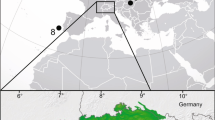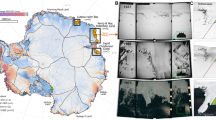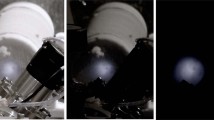Abstract
I HAVE pleasure in sending you a photograph of the iceberg around which we obtained the isothermal lines published in NATURE of December 12, 1912. I did not make an instrumental survey of this berg, but it was larger than the average of those met with in the Strait of Belle Isle. We sighted more than 200 bergs during our trip, and made traces of many of them. Invariably the temperature rose on the approach to a berg. Sometimes a small fall of temperature resulted abeam of the berg, but the rise of temperature was the one characteristic effect. The two other photographs [not reproduced] I send you illustrate the fantastic shapes seen in ice. I wish it were possible to furnish in some way an idea of the wonderful colouring, but I am totally unable to do so.
This is a preview of subscription content, access via your institution
Access options
Subscribe to this journal
Receive 51 print issues and online access
$199.00 per year
only $3.90 per issue
Buy this article
- Purchase on Springer Link
- Instant access to full article PDF
Prices may be subject to local taxes which are calculated during checkout
Similar content being viewed by others
Author information
Authors and Affiliations
Rights and permissions
About this article
Cite this article
BARNES, H. Iceberg Melting. Nature 90, 671–673 (1913). https://doi.org/10.1038/090671d0
Issue Date:
DOI: https://doi.org/10.1038/090671d0
Comments
By submitting a comment you agree to abide by our Terms and Community Guidelines. If you find something abusive or that does not comply with our terms or guidelines please flag it as inappropriate.



